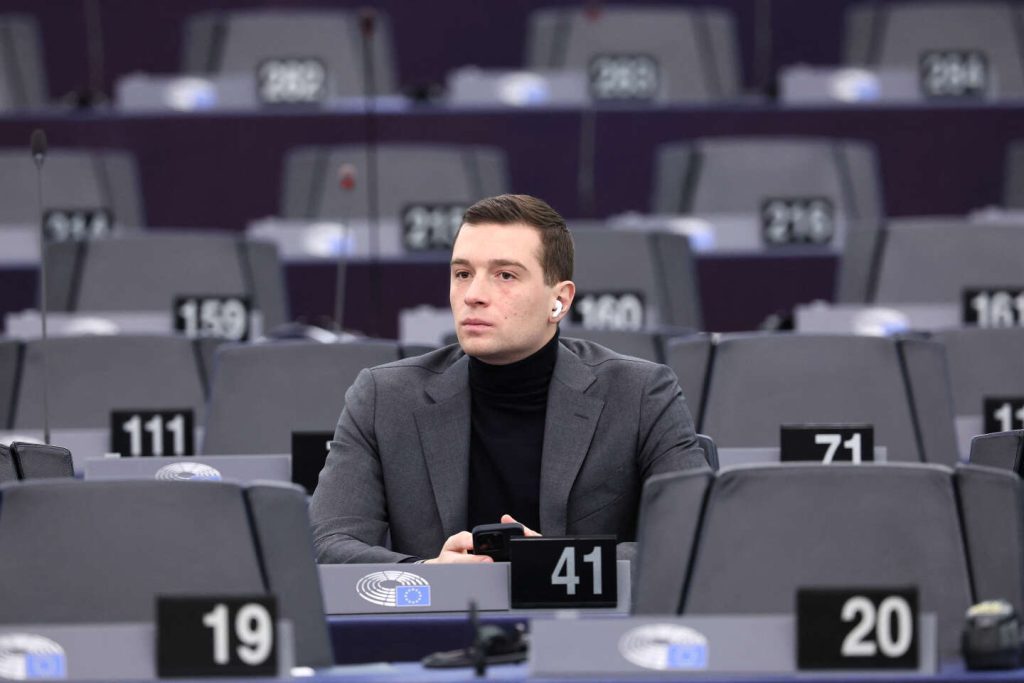Jordan Bardella, an MEP for the National Rally (RN) party, recently left Strasbourg quietly, possibly before returning with a larger delegation after the next European elections. Despite his absence from various events, such as the last lunch for RN MEPs or a cocktail organized by the Identity and Democracy (ID) group, Bardella’s departure from the European Parliament reflected his focus on media exposure and his role as president of the RN party rather than on his duties as a regional councillor in Ile-de-France. He rarely attended parliamentary sessions, opting instead for media appearances and public engagements.
Critics have pointed out Bardella’s lack of parliamentary work, to which he responds by emphasizing the popularity of his party in the polls and his preference for media and campaign activities. He believes that the work he does for the RN is more impactful than the efforts of other MEPs like François-Xavier Bellamy of The Republicans or Manon Aubry of France Unbowed, who, according to him, have not truly changed the lives of the French people. Bardella sees his role as a tribune of sorts, delivering scathing critiques of the European Union in brief speeches recorded in the empty chamber of the European Parliament in Strasbourg, which are then shared on social media by his party.
Bardella’s approach to his parliamentary duties, or lack thereof, mirrors that of other politicians who have prioritized media presence over legislative work. He has openly expressed his disdain for the traditional notion of political work, preferring to focus on public engagement and messaging. This attitude has drawn comparisons to Jean-Luc Mélenchon, another prominent French politician who was known for his fiery speeches and theatrical performances in the European Parliament. Bardella’s strategy seems to be paying off in terms of visibility and influence within his party and among his supporters.
Despite his absence from formal parliamentary sessions, Bardella’s strong media presence and messaging have solidified his position within the RN party and made him a prominent figure in French politics. He continues to use social media and public appearances to criticize the EU and advocate for his party’s platform, rather than engaging in traditional parliamentary debates or committee work. This approach has resonated with his supporters and helped him to carve out a distinct political identity as a vocal critic of the European establishment.
As Bardella continues to focus on his media presence and party leadership, questions remain about his commitment to representing his constituents in the European Parliament. His emphasis on public engagement and messaging over legislative work raises concerns about the effectiveness of his approach and the impact it has on the democratic process. However, supporters argue that Bardella’s strategy allows him to reach a wider audience and to advance the priorities of the RN party in a rapidly changing political landscape, where traditional parliamentary work may not always be the most effective means of influence.


